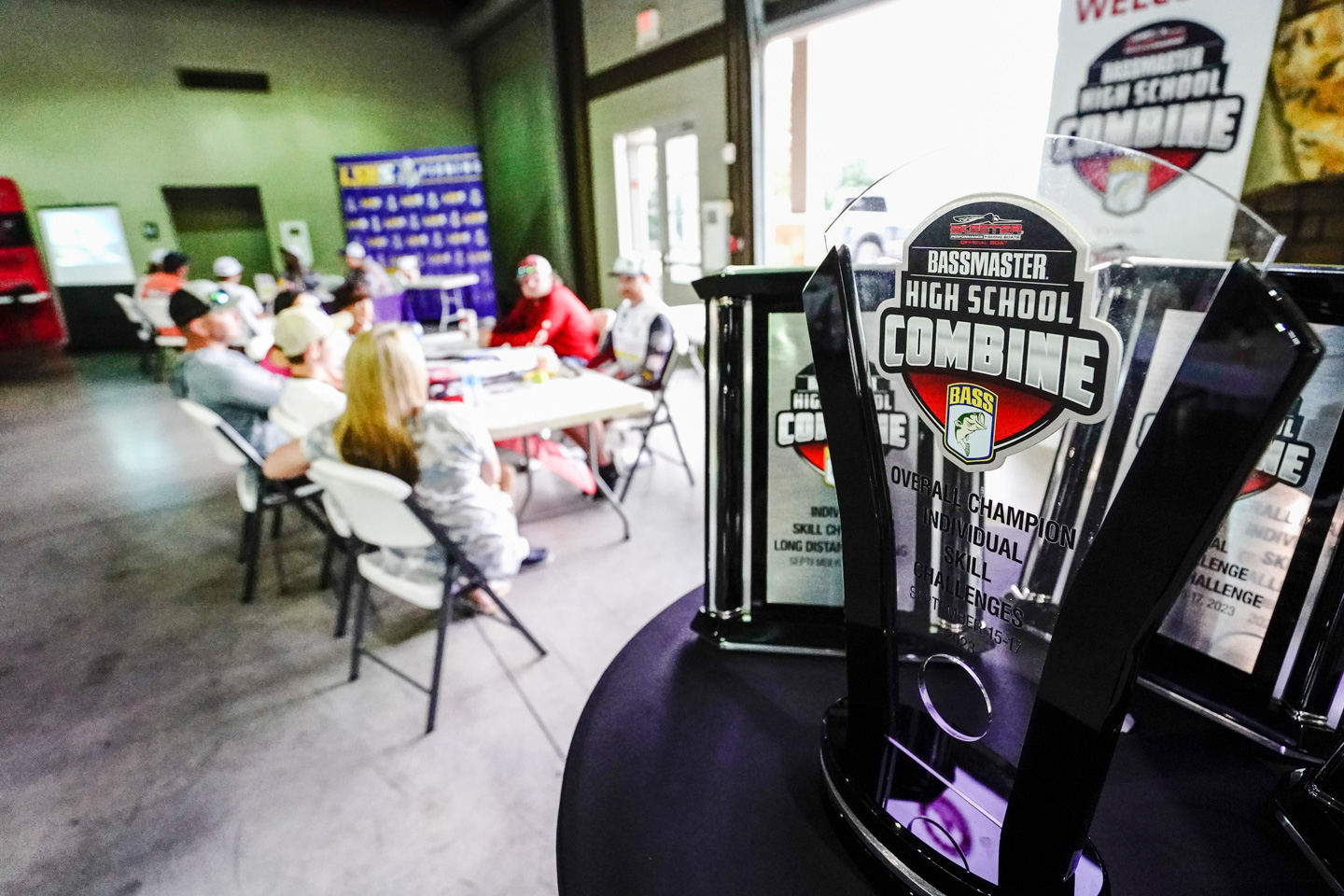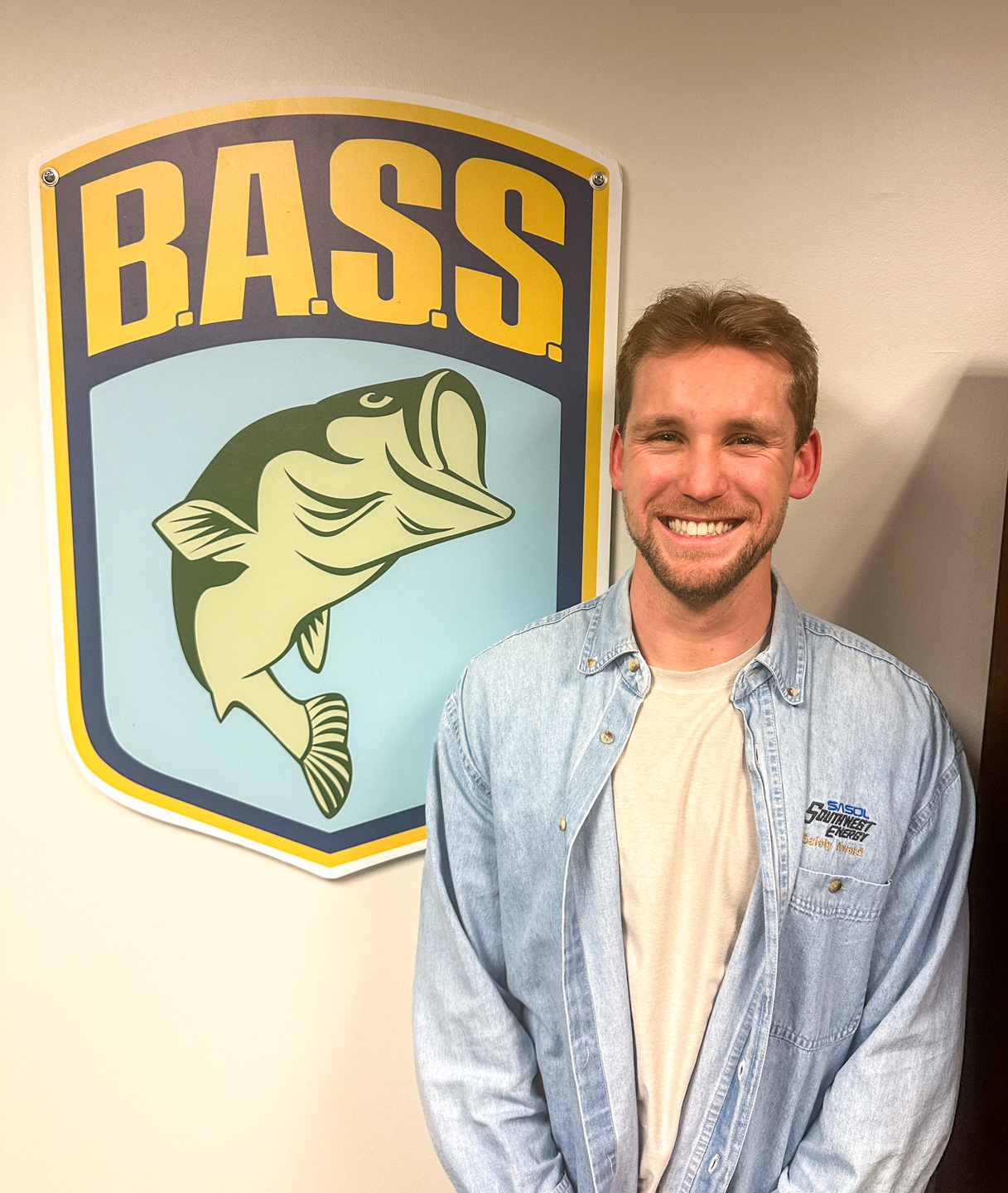
It’s not every day that the 25 best college fishing programs meet under the same roof. Some of those rare days occurred this past weekend at the Skeeter Boats Bassmaster High School Combine on the shores of Wheeler Lake in Decatur, Alabama.
The High School Combine is a unique event where high school anglers have the opportunity to meet with some of the best college fishing teams in the country and showcase their skills. The anglers that show up have aspirations to fish at the collegiate level and the Combine gives them the chance to interview with coaches and representatives from each school in hopes of earning a spot on their roster.
A little about myself, I am a former high school angler from Tucson, Arizona where I attended Pusch Ridge Christian Academy and a former college angler at Grand Canyon University in Phoenix, AZ and at the University of Montevallo in Montevallo, AL.
I can attest that this event is the only one of its kind where high school anglers can make an impression with the top schools in one weekend.
For those who don’t know how the Combine works, here is a brief overview: The anglers have dedicated timeslots to meet with their top college choices. They sit down with their parents and the coaches and discuss the school, the angler’s skillset and experience and of course grades. This allows the anglers to get a feel for the school and what they can expect if they decided to attend; the same goes for the coaches.
The anglers then jump into the competition portion of the Combine, which includes three skills competitions and three bonus challenges. The skills competitions include casting distance, casting accuracy and a technical skill course where they operate a Skeeter Boat around and make pinpoint casts to targets for time.
The bonus challenges include a one-cast challenge, knot tying and a boater safety quiz.
These competitions allow anglers to showcase their talent while also proving how comfortable they are with the basics of fishing. The scores are based on completion time, accuracy or distance, depending on the competition.
Joe McNamara of Rockford, Ill was the overall points winner and took home the Overall Skills Competition trophy as well as tying for the win in the Technical Challenge.
As one of the photographers for the event, I enjoyed covering the skills competition more than the meeting time. But when it comes down to it, the competitions don’t truly gauge what makes a successful tournament angler.
The best way to gauge an angler’s ability on the water is to fish with them. I’d love to see the Combine continue to develop to the point where coaches or current college anglers can get on the water with the high schoolers and spend some time fishing and talking with them.
The next best method to gauge an angler is to really get to know them; combine that with past tournament results and coaches can definitely get a more accurate read of the student.
This is what makes the meeting time with schools much more valuable to those who want to fish at the collegiate level.
To me, one of the coolest parts about the Combine is the rare opportunity for out-of-state high schoolers to travel and meet some of the top college coaches in one location, whom they may not have the chance to meet otherwise. This year, we had high schoolers from Iowa all the way to Pennsylvania; there aren’t many opportunities to talk to college coaches face to face in those regions.
Anglers should put most of their effort into meeting with every school they have interest in. They should spend some time thinking of questions to ask and have an idea of what they are looking for in a university and what they want to get out of college fishing.
Even if anglers don’t initially think a school is for them, they should sit down with them and hear what the coaches have to say. Ask plenty of questions, be polite and leave a good impression. The fishing industry is very small and word travels fast, good or bad.
If an angler is interested in a school, continue to stay in touch with the coach/anglers. Schedule a visit and make the effort to show that you want to be a part of the team.
Finally, each school has its positives and negatives. Anglers and parents will likely only hear about the positives from coaches. My advice is to reach out to current anglers on the team and ask about their experiences to gauge if it’s the right fit.
When it comes down to it, the school doesn’t make the angler, the angler makes the school. The best college anglers in the country have historically come from many different universities all across the country. Anglers should make their decision based on what is best for them and let their fishing do the talking.





